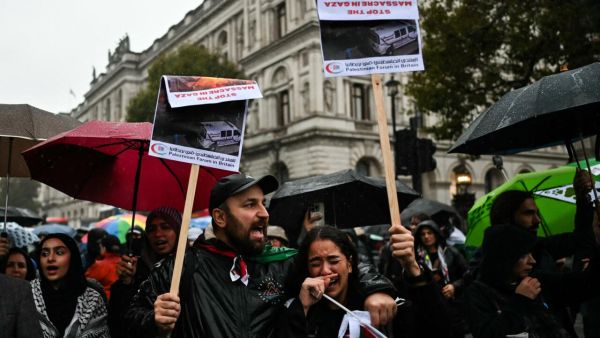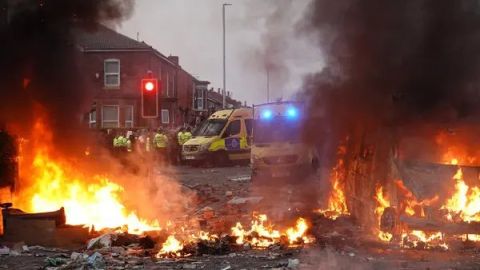ALBAWABA- Thousands of anti-racism protesters took to the streets in cities and towns across the United Kingdom, responding to a wave of anti-immigrant riots that shook the nation last week.
Demonstrations were held in North London, Bristol, Newcastle, and other locations, where most participants peacefully chanted "Refugees are welcome here."
Despite the peaceful nature of these protests, authorities were on high alert, deploying thousands of security personnel in anticipation of potential violence.
This heightened preparedness followed over 100 calls for demonstrations, raising concerns of a repeat of last week's unrest.
The riots that erupted last week were fueled by misinformation spread online, falsely claiming that the suspect in the stabbing of three young girls in Southport on July 29th was a Muslim asylum seeker.
A subsequent investigation revealed that the attacker was, in fact, a 17-year-old Christian of African descent.
This revelation debunked the narrative propagated by far-right groups, which had used the false information to incite hostility against the Muslim immigrant community.
The unrest led to targeted attacks on mosques and hotels housing asylum seekers, with some shops being looted and set on fire.
In response, British police arrested more than 90 individuals after protests organized by far-right groups spiraled into riots in cities such as Hull, Liverpool, Bristol, Manchester, Stoke-on-Trent, Blackpool, and Belfast.
In several locations, missiles were thrown, shops looted, and police officers attacked. While smaller protests in other areas did not escalate into violence, the past week's events have heightened tensions across the country.
British Prime Minister Sir Keir Starmer has pledged "full support" to police forces in their efforts to take decisive action against "extremists" seeking to "sow hatred."
These tensions have been further inflamed by the killing of three young girls at a dance party in Southport, Merseyside, last Monday, an incident that has added to the sense of unrest and urgency for addressing the underlying issues driving these confrontations.











